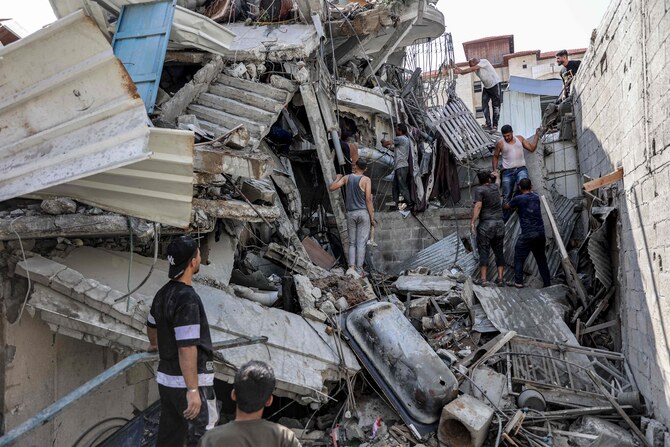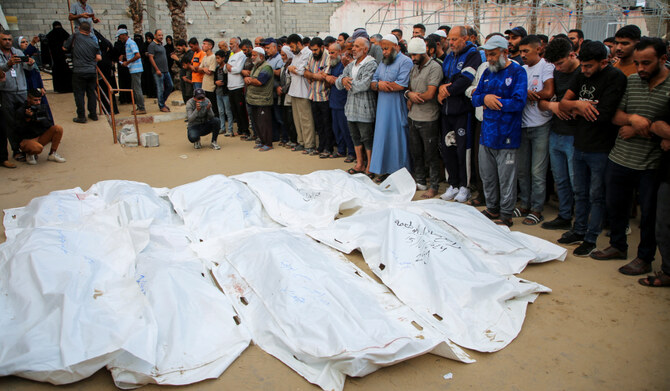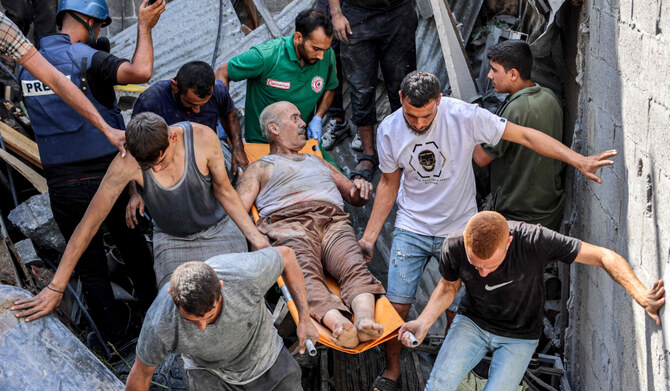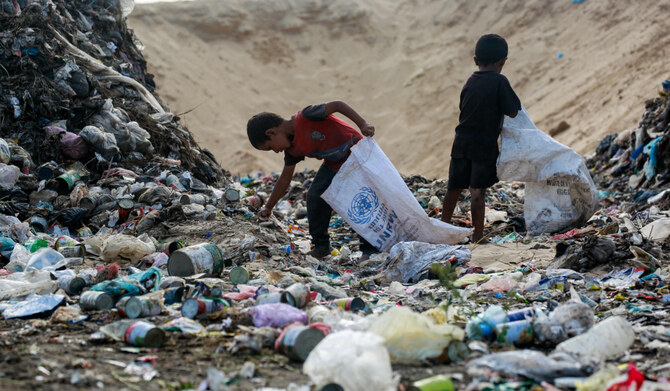JERUSALEM: The Gaza Strip remains in a state of “constant peak emergency,” a UN official said, as aid groups continue to face severe challenges in delivering assistance after more than a year of war.
“Every day is a struggle to make sure that we can provide our assistance,” Antoine Renard, head of the World Food Programme (WFP) in the occupied Palestinian territories, told AFP shortly after a visit to war-torn Gaza.
Vast areas of Gaza have been devastated by Israel’s retaliatory assault on the territory after the October 7 Hamas attack last year sparked the war.
Israel has been intensifying operations in the north of the besieged Palestinian territory, where the UN has warned hundreds of thousands of people are trapped.
“People in the north of Gaza are relying solely on assistance. They practically have no access to fresh food — just staples provided by UNRWA and WFP,” Renard said, referring to the UN agency for Palestinian refugees.
He said that most residents have survived so far on tinned food, a situation he describes as “unsustainable.”
“It’s unique to actually have one year into a war where people are just depending on processed food that is coming from cans,” he said.
“We face issues with crossings. We face issues in having our assistance not being under bombs,” he added, noting that looting of the goods once in the territory was also a problem.
Despite a desperate need to increase the amount of aid going in, he said no WFP food aid has managed to reach northern Gaza since October 1, requesting that “crossings be reopened.”
The Israeli military said it was facilitating the transfer of humanitarian aid into northern Gaza, including fuel for hospitals and allowing the transfer of patients from one hospital to another.
According to the military, some 30 trucks carrying flour and food from the WFP entered northern Gaza through the Erez West crossing on Monday.
James Elder, spokesman for the UN children’s agency UNICEF, on Tuesday said Gaza appeared to be facing the worst restrictions on aid yet.
“August was the lowest amount of humanitarian aid that came into the Gaza Strip of any full month since the war broke out,” he said.
Renard said access to fresh food in southern Gaza is slightly better, with some vegetables and fruits available, but most people in the area still lack access to dairy, meat or fish.
Most goods, however, remained out of reach for many residents with shortages causing prices to skyrocket.
“The price of a can has just doubled now again on the market in the south of Gaza,” he said.
Bread remains one of the few fresh staples available to Gazans, he said, with WFP-assisted bakeries providing a loaf of bread to 2.1 million people daily.
“For many in Gaza, this is the only fresh food they have,” Renard added, calling them a “lifeline for the entire population.”
The war in Gaza was sparked by Hamas’s attack on October 7 last year, which resulted in the deaths of 1,206 people in Israel, mostly civilians, according to an AFP tally based on official Israeli figures which includes hostages killed in captivity.
Israel’s retaliatory military offensive has killed 42,344 people in Gaza, most of them civilians, according to figures from the health ministry in Hamas-run Gaza that the United Nations has described as reliable.





























